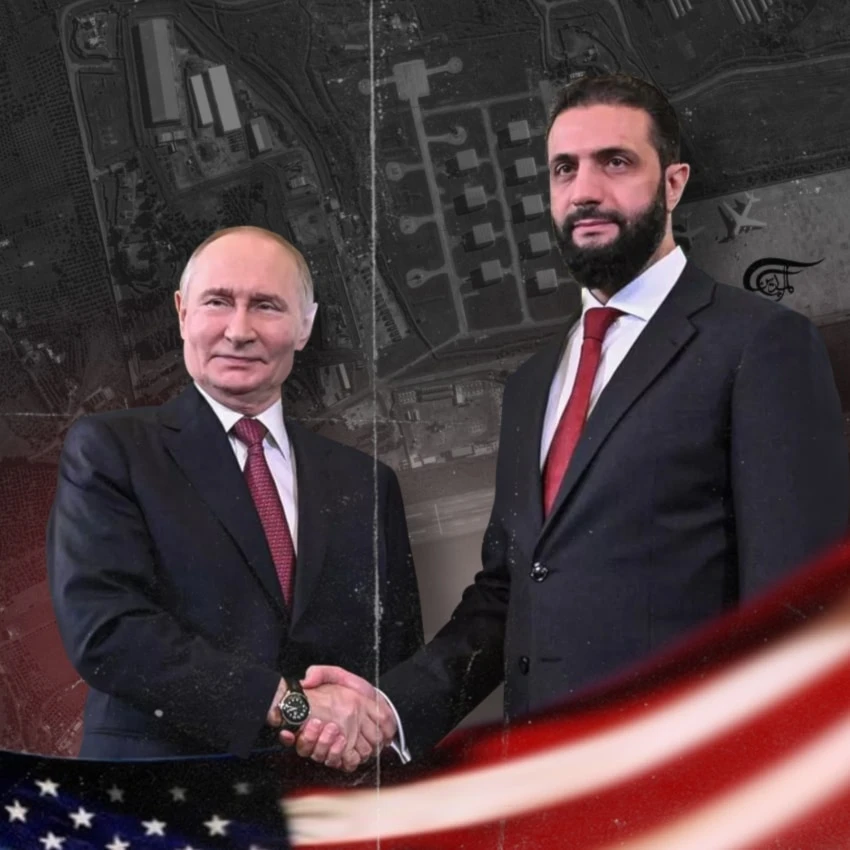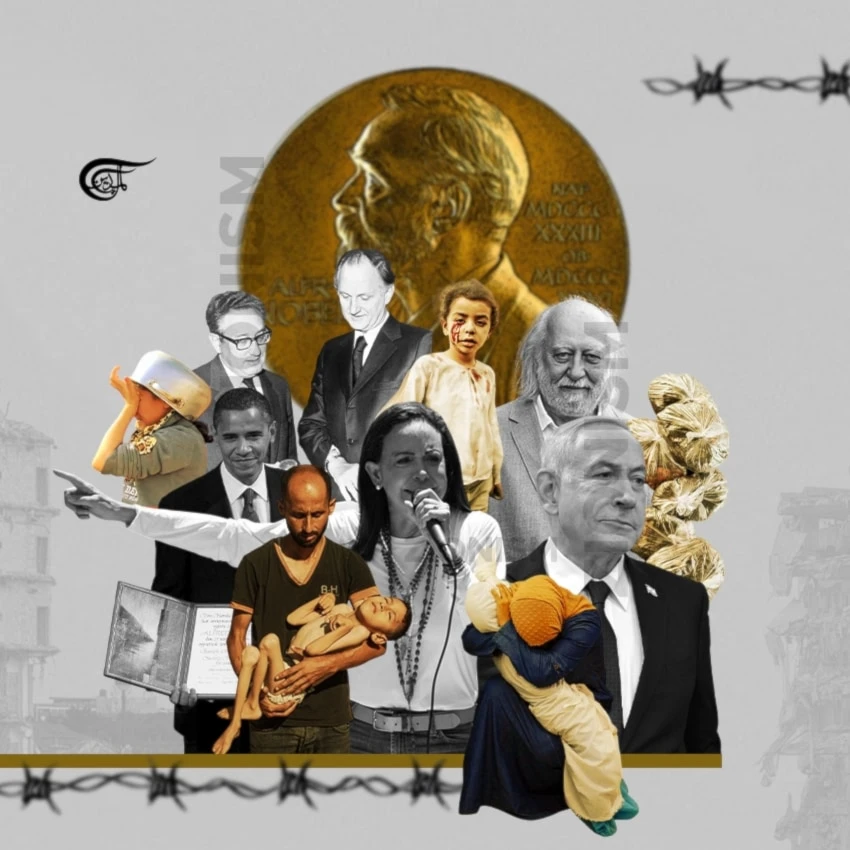Remembering President Saleh Al-Sammad, 4 years after his assassination by US-backed Saudi airstrike
On the 4th anniversary of his assassination, Al Mayadeen English interviews the secretary of President Saleh Al-Sammad about several topics including his memories with Al-Sammad.
-

Q&A: Remembering President Saleh Al-Sammad, 4 years after his assassination by US-backed Saudi airstrike
Ahmed Al-Razehi, the secretary of Saleh Al-Sammad, former president of the Supreme Political Council, an executive body formed to rule Yemen, recalled Al-Sammad martyrdom with his six bodyguards on 19 April 2018 by a US-backed Saudi-led coalition airstrike. He said it was a "tragedy," and since then, he has been devoting his life to publishing his memories with Al-Sammad on social media.
In an exclusive interview with Al Mayadeen English, Al-Razehi said he did not expect that the US-led coalition would target Al-Sammad in "this treacherous and cowardly way".
An airstrike targeted the Al-Sammad convoy in Hodeidah after he delivered a speech at the local councils' assembly along with the Hodeidah governor.
-

Late President Saleh Al-Sammad along with his secretary Ahmed Al-Razehi (left) during a popular event (Courtesy of Al-Razehi for Al Mayadeen English)
62 persons were accused of participating in the assassination of Al-Sammad according to the Specialized Criminal Court verdict. The primary figure accused of his assassination is US President Donald Trump, followed by Saudi Arabia, UAE leaders, and Yemeni military leaders of the Hadi Saudi-backed Government.
Al-Razehi talked about how Trump and other leaders of the Saudi coalition must be brought to justice. He sent his messages to the countries that were involved in the assassination of Al-Sammad, and mentioned the kind of relationship Al-Sammad wanted to establish with western and neighboring countries.
Here is the full interview:
Q: First of all, tell us how did you survive the assassination of Saleh Al-Sammad and his bodyguards, and what was your reaction when heard the news about his assassination?
A: I wasn’t with President Saleh Al-Sammad during his last visit to Al-Hodeidah Governorate, during which he was targeted by the US-led coalition, and I wish I had been with him, to have the honor of martyrdom with an exceptional leader like President Al-Sammad, who made every effort to promote and defend Yemen and achieve the aspirations of the Yemeni people in liberation, independence, building a modern Yemeni state, and achieve victory for the oppressed Yemeni people.
The news of his martyrdom was a tragedy for me, and I did not expect that the US-led coalition forces would target him in this treacherous and cowardly way. For me, the news of his martyrdom was a target of the whole Yemeni state and an assassination of an entire country. His only concern was Yemen and building a state of institutions. He devoted his life to this goal. He was in the first ranks of the front lines to fight the Saudi aggression.
Despite my grief and sorrow, his assassination represented a source of pride for me, because President Al-Sammad offered his soul to this country as an exceptional leader. History has recorded his brave stance in its brightest pages, and the martyr President Al-Sammad will remain immortal in the hearts of generations inspired by his sacrifice and redemption.
Q: The first accused of the assassination of Al-Sammad is former US President Donald Trump... Why wasn't the case brought to the International Court of Justice, as it is the judicial organ of the United Nations empowered to settle disputes between states?
A: The accused persons in Case No. 12 of 2019 are 62 persons, and the top person of interest is US President Donald Trump. The case took its own course in the national judiciary: the Criminal Appeals Division in Hodeidah Governorate convicted 16 defendants of the crime of assassination and were sentenced to death and to discretionary penalties, with all their properties confiscated.
Regarding the foreign defendants in the assassination of President Al-Sammad, including US President Trump, the first-instance verdict postponed the decision of panel proceedings against them and returned the case file to the Prosecutor's Office for investigation.
Thus, there are two tracks in this heinous crime, the first is through the national judiciary, being the only competent body in this case, and the second track is the prosecution of the accused before the international judiciary. Some procedures are taking place in this aspect, by completing the file of this case and others tho prosecute the leaders of the aggressor countries and all those involved in committing war crimes against the Yemeni people, and all details will be revealed at the right time through the competent authorities.
Q: How can the leaders of the US-led coalition countries be prosecuted to punish the killers of Al-Sammad and his companions?
A: The judicial and concerned authorities have been collecting evidence to complete documents related to the crimes committed by the offenders and bring these judicial cases to national or international supreme courts - in order to ensure that the leaders of these countries and all those involved in the assassination of President Al-Sammad and his companions will not enjoy impunity and remain unpunished.
The legal organizations and centers have been responding vigorously to the prosecution of Presidents and military leaders in their countries. Therefore, there will be a day when they will be convicted for the grave crimes they committed against the Yemeni people.
-

Late President Saleh Al-Sammad with his secretary Ahmed Al-Razehi (right) (Courtesy of Al-Razehi for Al Mayadeen English).
Q: Why are Yemeni criminals fleeing from justice like Hadi and Al-Ahmer who are not yet arrested, seized, or their properties confiscated?
A: There are procedures carried out by the Yemeni judiciary as a judicial authority that operates independently and professionally in this aspect according to legal procedures, so the judiciary is taking its own course.
There are also procedures taking place regarding the preventive detention of the property of the leaders of mercenaries and traitors affiliated with the US-Saudi-led aggression involved in committing war crimes against the Yemeni people and destroying their properties and capabilities. The offenders will not benefit from these leaders or prevent them from judicial or popular prosecution.
Q: Could you recall Al-Sammad’s discussions with the US and Britain, regarding the war on Yemen in light of his speech to The New York Times in 2015, in which he expressed the desire of Ansar Allah to establish normal relations with the US and KSA?
A: President Al-Sammad affirmed more than once Yemen’s openness to dialogue with various countries of the world, except the Zionist entity, and keenness to establish cooperative relations based on respect for Yemen’s sovereignty and independence and non-interference in its internal affairs, based on peer-to-peer and not subordination and dependency, taking into consideration the Arab and Islamic issues, notably the Palestinian cause which is the central issue of the Ummah (nation).
President Al-Sammad also affirmed that Yemen is keen to enhance cooperation with its regional and international environment in a way that serves Yemen's interest, security, and stability, and also achieves the security and stability of the region in the face of the challenges it faces.
Maybe this liberation trend didn’t attract his belligerents, and the countries of regional and international power felt threatened by this approach. They took this initiative as an attempt that would prevent them from exercising their hegemony over Yemen, and from plundering its resources, and violating its sovereign decision.
Q: What was Al-Sammad’s role that upset America and Britain and pushed them to take part in the cowardly assassination?
A: President Saleh Al-Sammad was an exceptional figure, the consensus of the national forces, and a unique leader in the history of Yemen, distinguished by his courageous stances, asceticism, and political acumen, stripped of all worldly ambitions and not even having a home for his family, except for his residency in Saada, which was also hit by the raids of aggression.
He led Yemen in a difficult period overwhelmed by the forces of evil and tyranny, and despite the challenges of aggression and siege, we witnessed during his presidency a lot of achievements, both at the level of the state institutions, laying the first rock of the modern Yemeni state through his national project, "A hand that protects and a hand that builds".
President Al-Sammad’s liberation and renaissance approach, getting out of the mantle of dependency are precisely what disturbed the countries of aggression, led by America, Britain, and the international powers, which planned to target him. They thought they would succeed to eliminate his liberation project, but the result was the opposite.
Q: Finally, what message would you like to send to the international community on the fourth anniversary of President Al-Samad's martyrdom?
A: The international community should be well aware that the assassination of the martyr President Al-Samad will not go unnoticed, and will remain a witness to its complicity in the crime.
The second message is that the assassination of President Al-Sammad will not weaken the will of the Yemeni people, but will rather increase their determination to continue steadfastness and persistence in the face of the forces of aggression and hegemony. This murder will be a strong motive for the leaderships in Yemen to follow his approach and pursue the building of a free and independent Yemen and to continue his project "A hand that protects and a hand that builds".
The third message is that President Al-Sammad will remain immortal in the conscience of the Yemeni people and inspire all the free people in the world in the face of arrogant forces to free themselves from political tutoring and dependence, and live with dignity and pride, whatever the challenges and difficulties could be.
And the fourth message on the [fourth] anniversary of the martyrdom of President Saleh Al-Sammad is that the Yemeni people will not forget this crime and its perpetrators will be punished sooner or later, as they are unbreakable people.

 Naseh Shaker
Naseh Shaker
 9 Min Read
9 Min Read











